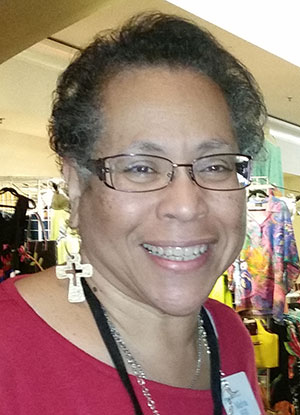
Hunt County officially received its one-hundredth Texas Historical Marker recently. This was not a normal historical marker, but only one of two special markers here in Hunt County. Both are considered Undertold Markers, a very unique way to recognize local history that is often not represented subjects or simply stories that have seldom been told. The first one honored Mary Jim Morris, an early Black educator here in Greenville. The latest one, unveiled on Saturday, August 22, 2020 told the story of the formation of Ebenezer Baptist Church in Wolfe City.
Beginning in 2006, the Texas Historical Commission began collecting $100 marker application fee to “establish an account to offer funding incentives for special or priority markers.” Funds are intended to address historical gaps, promote diversity of topics, and proactively document significant under representative subjects or untold stories.
The Ebenezer Baptist Church marker became a victim of 2020. It was approved just before the foundry that Texas Historical Commission used for years closed their business. That meant finding another foundry with comparable pricing and craftsmanship. Approved marker applications began to pile up while the search was diligently carried out. Shortly after a new foundry was contracted, the corona virus began. Staff at the Texas Historical Commission in Austin was sent home, as many were throughout the country. Work was completed but not as quickly as earlier.
The Ebenezer marker went to the new foundry in May of this year. Earlier this month the new marker arrived at Ebenezer Baptist Church at 301 Spencer Street in Wolfe City. Within two or three days it was proudly mounted on the front lawn of the church. But the story behind the marker is what is truly remarkable.
Wolfe City is located on the Blackland Prairie, where the deep soil is very fertile. While early settlers came, especially after the Civil War, they lived on large farms. Many were cattle ranches. Ranches were turned into cotton farms. One of the earliest churches was the Baptist Church.
On the first Sunday in June 1889, through the efforts of former slave Harrison Loftin a meeting convened to create a church for the Black community. Six white men, including Rev. Ponder met with three Black men and four Black women. When the church was organized, Louise Loftin named it Ebenezer Baptist Church from the Biblical story in the First Book of Samuel. The Jewish translation means Stone of Help, very apropos to the new church.
Note that the committee for the Black community had three men and four women. A woman gave the church a very significant name. To find a committee of mixed genders in the United States, especially in the Southern States was extremely unusual at that time. That was in 1889, more than 131 years before women were allowed to vote with the 19th Constitutional Amendment. That’s what made the creation of Ebenezer Baptist Church so very, very special.
Today, at Ebenezer, Melva Hill is the first woman preacher.
